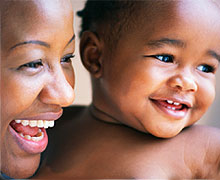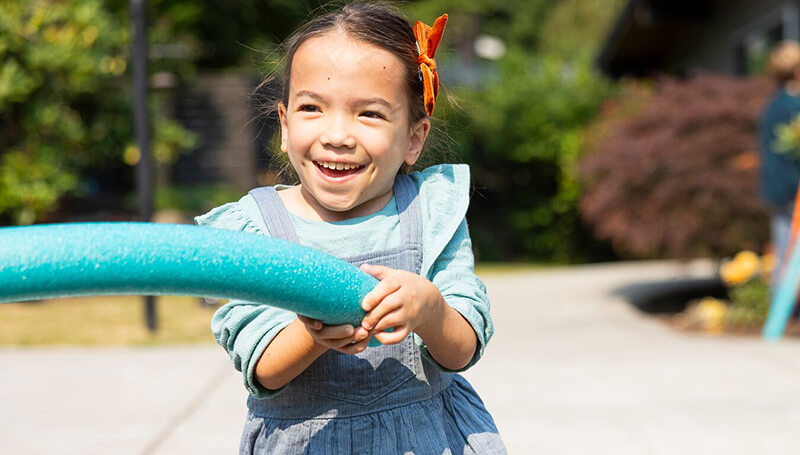Immunizations: Why Are They Needed and How Do I Prepare My Child?
You can download this article as a PDF (English) (Spanish).
Why Does My Child Need Immunizations?

Immunizations (vaccines) prevent diseases that can make children very sick, cause lifelong disabilities and even death. They prevent diseases by making the body resist them. This helps your child stay well.
Immunizations also protect others. When more people have been given vaccines, diseases that can be prevented by vaccines cannot spread as much. This protects babies who are too young to get vaccines, people who are too old to get vaccines, and those with weaker immune systems or certain medical conditions who cannot get vaccines.
Some vaccines prevent diseases that are no longer common in the United States, but these diseases are still common in other parts of the world. The diseases can travel to the United States when people visit other places and return home. This has happened with measles in the last few years.
Some parents are unsure about whether to give their child immunizations. If you have questions or concerns after reading this, talk with your child’s healthcare provider or visit the resources listed at the bottom of this page.
Are vaccines safe?
Yes. Vaccines are tested for many years before they can be used. Vaccines continue to be studied even after they are approved for use.
Some children may have minor reactions to shots. These can include a slight fever or soreness where the shot is given. Serious reactions are rare. Your doctor or nurse can give you information on the benefits and risks of vaccines. The important thing to know is that getting the disease is much more harmful than getting the shot.
When should my child be immunized?
The hepatitis B vaccine is often given at birth. Most other shots are given starting when your baby is 2 months old. Your child may get vaccines as part of well-child checkups or during visits for minor illnesses. Vaccines may be given even if your child has a cold, mild fever or is taking antibiotics.
For the best protection, start the shots on time and complete each series. The immunization schedules for children and teens are updated each year. It is best to follow the schedules from the Centers for Disease Control and Prevention (CDC). There is one for 0-to-6-year-olds and one for 7-to-18-year-olds.
A child who has never been immunized or who has missed some shots can still catch up. Talk to your child’s doctor or clinic.
Keep a copy of your child’s shot record. When your child starts child care, school or camp, you’ll need to have a record of their immunizations. Call the Family Health Hotline at 800-322-2588 to get a free Washington State Lifetime Immunization Record Card.
How can I help my child prepare?
A little preparation can help you feel more confident and relaxed, which in turn helps your child. For instance, you may want to ask your spouse or a close friend or relative to come with you and your child to the visit. Also, always tell your healthcare provider if you or your child are worried or anxious about needles or pain. Together, you can make a plan to help your child feel the most comfortable.
Tips for Helping Your Child
Babies
- If you breastfeed/chestfeed, it is best to cradle your baby and breastfeed/chestfeed during and after the shot.
- If you are not breastfeeding/chestfeeding, ask about giving your baby oral sucrose during and after the shot. Cradle your baby to comfort them.
- Talk to your baby right before and during the shot.
- Distract them with a favorite toy, and comfort them with cuddles and hugs after the shot.
Toddlers and preschoolers
- Ask about over-the-counter or prescription skin numbing cream to use before the shot.
- In a calm voice, tell your child what will happen just before the shot is given. Be honest. Say it may feel like a pinch, but it will be over quickly.
- Your child may want to act out giving a shot to a doll or teddy bear. Try to distract your child during the shot with a favorite toy, picture or book. When it is over, give praise and comfort.
- From age 4 and up, try teaching your child to “blow away” shot pain. Teach them to take a deep breath and blow, just like blowing bubbles, during the shot.
School-age kids, pre-teens and teens
- Ask about over-the-counter or prescription skin numbing cream to use before the shot.
- Tell your child what is going to happen and that the shot helps to keep them safe and healthy. Do not tell them “it won’t hurt” or that it’s not OK to cry. Let your child experience and express what is true for them.
-
Give your child some control by offering choices when possible – for example, where they would like to sit, or which arm will get the shot.
- Some kids cope best with distraction, like reading a book or singing a song. Other kids cope best by being more actively involved and it can help if you tell them what they will see, hear and smell, and give them a job to hold the Band-Aid.
- Sitting or lying down for about 15 minutes after a vaccination can help prevent fainting, which is more common after shots for pre-teens and teens.
- Comment on their successes. For example, praise your child for holding their arm still. This can build their confidence.
To Learn More
- Call the Family Health Hotline at 800-322-2588. Ask for a free copy of the Plain Talk about Childhood Immunizations booklet or download a copy.
- Contact the Centers for Disease Control and Prevention (CDC) for immunization information in English and Spanish at 800-232-4636 or visit their website.
- Talk to your child’s healthcare provider.

